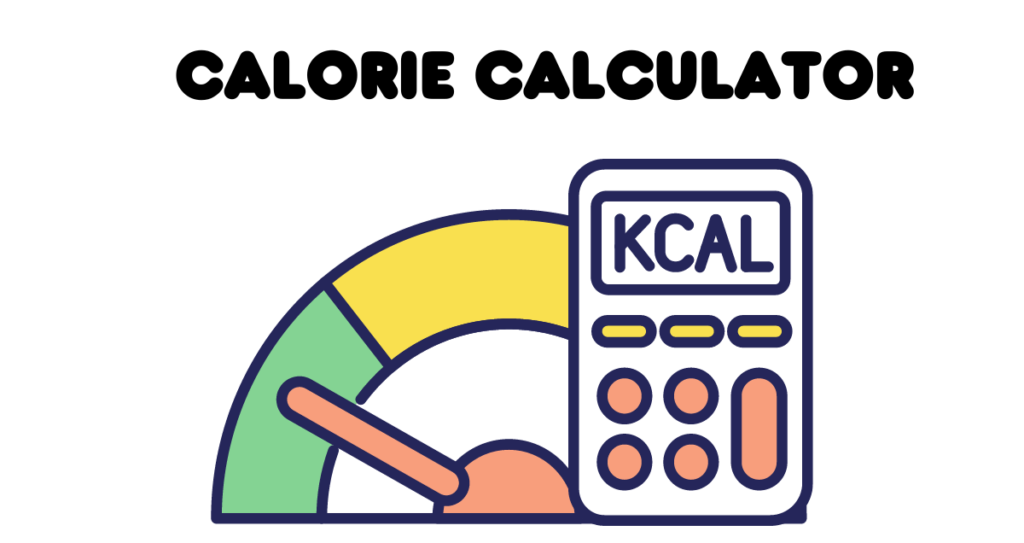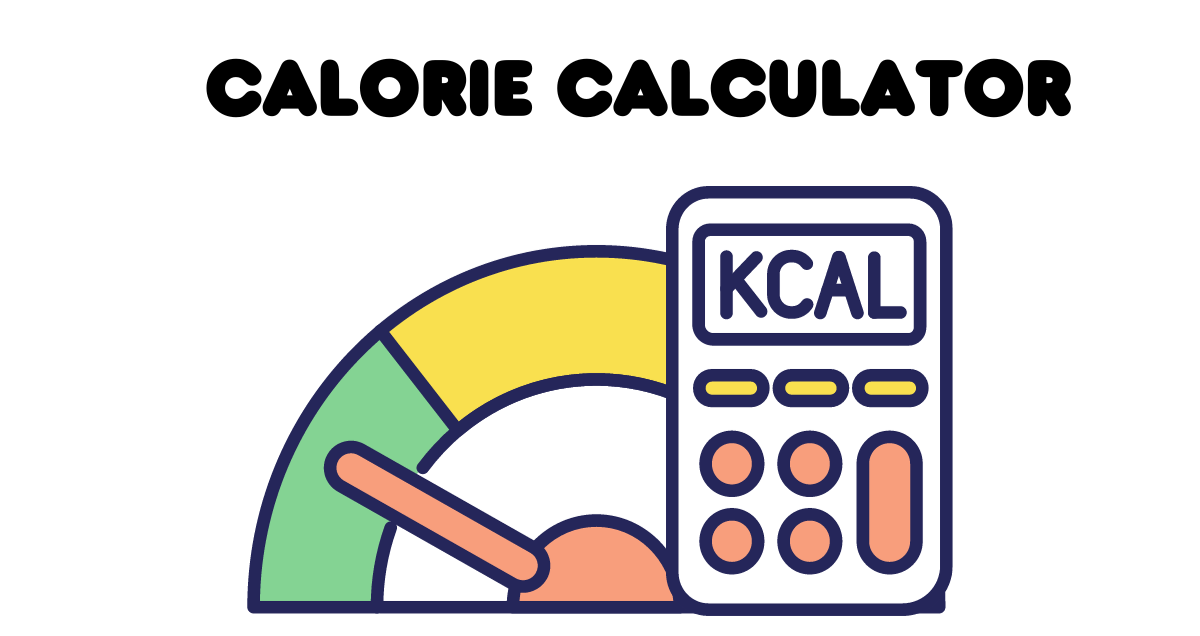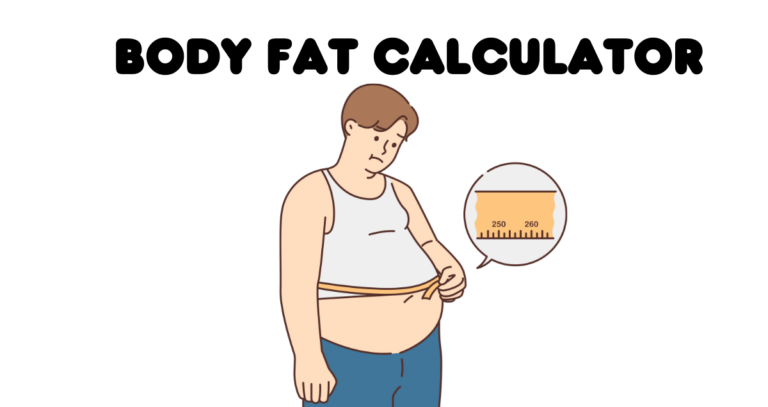Calorie Calculator [Advance Results]
In the intricate landscape of health and fitness, the concept of calories serves as the compass guiding us toward a balanced and healthier life. The Calorie Calculator, a digital marvel, untangles the complexities of nutrition, offering a simplified yet powerful tool to understand and manage our daily caloric needs. This guide aims to demystify the calculator, exploring its functionalities, the science behind calories, and practical insights into the caloric content of foods and the impact of various exercises.
Why do you need Calories?
Before we delve into the workings of the Calorie Calculator, let’s grasp why calories are a fundamental aspect of our health journey.
What is a Calorie?
A calorie, fundamentally, is the measure of energy needed to raise the temperature of one gram of water by one degree Celsius. This unit of energy plays a pivotal role in fueling the intricate machinery of our bodies, powering everything from the fundamental physiological processes that keep us alive to the demanding physical activities we engage in daily.
Our bodies are remarkable energy converters, adept at transforming the calories from the food we consume into the energy required for various bodily functions. This energy is the driving force behind the heartbeat, the breath, and the myriad of chemical reactions that sustain life. Whether we’re engaged in a leisurely stroll or an intense workout, calories serve as the indispensable fuel that propels us through every moment of our lives.
As we age, our relationship with calories undergoes subtle shifts. The efficiency of our metabolism, influenced by factors like age, gender, and activity level, plays a crucial role in determining our daily caloric needs. To unravel the mysteries of your body’s energy requirements and explore the impact of aging, consider using our online age calculator. This tool not only provides insights into your chronological age but also serves as a gateway to understanding the intricate balance between calories, metabolism, and the aging process.
BMR and TDEE
The Calorie Calculator operates based on two crucial metrics: Basal Metabolic Rate (BMR) and Total Daily Energy Expenditure (TDEE). BMR represents the calories needed at rest, while TDEE factors in our activity levels, providing a more realistic estimate of daily caloric requirements.
Harris-Benedict Formula
This age-old formula, dating back to the early 20th century, takes gender into account to estimate BMR and TDEE. It lays the foundation for understanding caloric needs.
For Men: BMR=88.362+(13.397×weight in kg)+(4.799×height in cm)−(5.677×age in years)BMR=88.362+(13.397×weight in kg)+(4.799×height in cm)−(5.677×age in years)
For Women: BMR=447.593+(9.247×weight in kg)+(3.098×height in cm)−(4.330×age in years)BMR=447.593+(9.247×weight in kg)+(3.098×height in cm)−(4.330×age in years)
Mifflin-St Jeor Formula
A contemporary upgrade, this formula refines calculations based on gender, providing a more accurate estimation of BMR and TDEE.
BMR Men =(10×weight in kg)+(6.25×height in cm)−(5×age in years)+5BMRMen=(10×weight in kg)+(6.25×height in cm)−(5×age in years)+5
BMR Women=(10×weight in kg)+(6.25×height in cm)−(5×age in years)−161BMRWomen=(10×weight in kg)+(6.25×height in cm)−(5×age in years)−161
Katch-McArdle Formula
For those seeking a personalized touch, this formula factors in lean body mass, providing a closer estimate of caloric needs.
BMR=370+(21.6×lean body mass in kg)BMR=370+(21.6×lean body mass in kg)

Different Activities for Maintaining Calorie Balance
| Type of Activity | Examples |
|---|---|
| Cardiovascular Exercises | Running/jogging, Cycling, Swimming, Jump rope, HIIT |
| Strength Training | Weightlifting, Bodyweight exercises, Resistance bands |
| Outdoor Activities | Hiking, Biking, Rollerblading, Kayaking, Sports |
| Mind-Body Exercises | Yoga, Pilates, Tai Chi, Qi Gong |
| Team Sports | Soccer, Basketball, Volleyball, Softball |
| Recreational Activities | Dancing, Gardening, Bowling, Golfing (walking) |
| Water Activities | Water aerobics, Stand-up paddleboarding, Rowing |
| Winter Activities | Skiing, Snowboarding, Ice skating |
| Daily Life Activities | Walking/biking for transportation, Taking the stairs |
| Fitness Classes | Spin classes, Boot camp, Kickboxing, Barre workouts |
How to use this Online Calorie Calculator?
This section will walk you through the simple and user-friendly process of using our online calorie calculator to gain insights into your daily caloric needs. Whether you’re aiming to maintain your current weight, embark on a weight loss journey, or plan a healthier lifestyle, these step-by-step instructions will help you navigate the calculator with ease.
- Enter Your Basic Information:
Begin by providing fundamental details such as your age, gender, height in centimeters, and weight in kilograms. These factors form the foundation for accurate calorie estimations. - Select Your Activity Level:
Choose your activity level based on your daily routine. Whether you engage in moderate exercise 4-5 times a week, have light exercise 1-3 times a week, or experience little to no physical activity, your choice helps tailor the results to your lifestyle. - Choose Your Preferred Formula:
Opt for the calorie estimation formula that best suits your preferences. Whether you prefer the Revised Harris-Benedict, Mifflin-St Jeor, or Katch-McArdle Formula, each provides a unique perspective on your daily caloric needs. - View Your Results:
The calculator will instantly generate a set of results, showcasing the number of daily calories you require to maintain your current weight. Additionally, it presents estimates for mild weight loss, weight loss, and extreme weight loss, each with a corresponding calorie count. - Understand Your Results:
Delve into the implications of the results. For instance, the calculator may recommend a certain calorie intake for maintaining weight or achieving specific weight loss goals. It’s important to understand these figures and how they align with your health objectives. - Consult with a Professional (if necessary):
Should you be considering a weight loss plan that involves a significant reduction in calorie intake, it’s advisable to consult with a healthcare professional. They can provide personalized guidance and ensure your approach aligns with your overall well-being.


